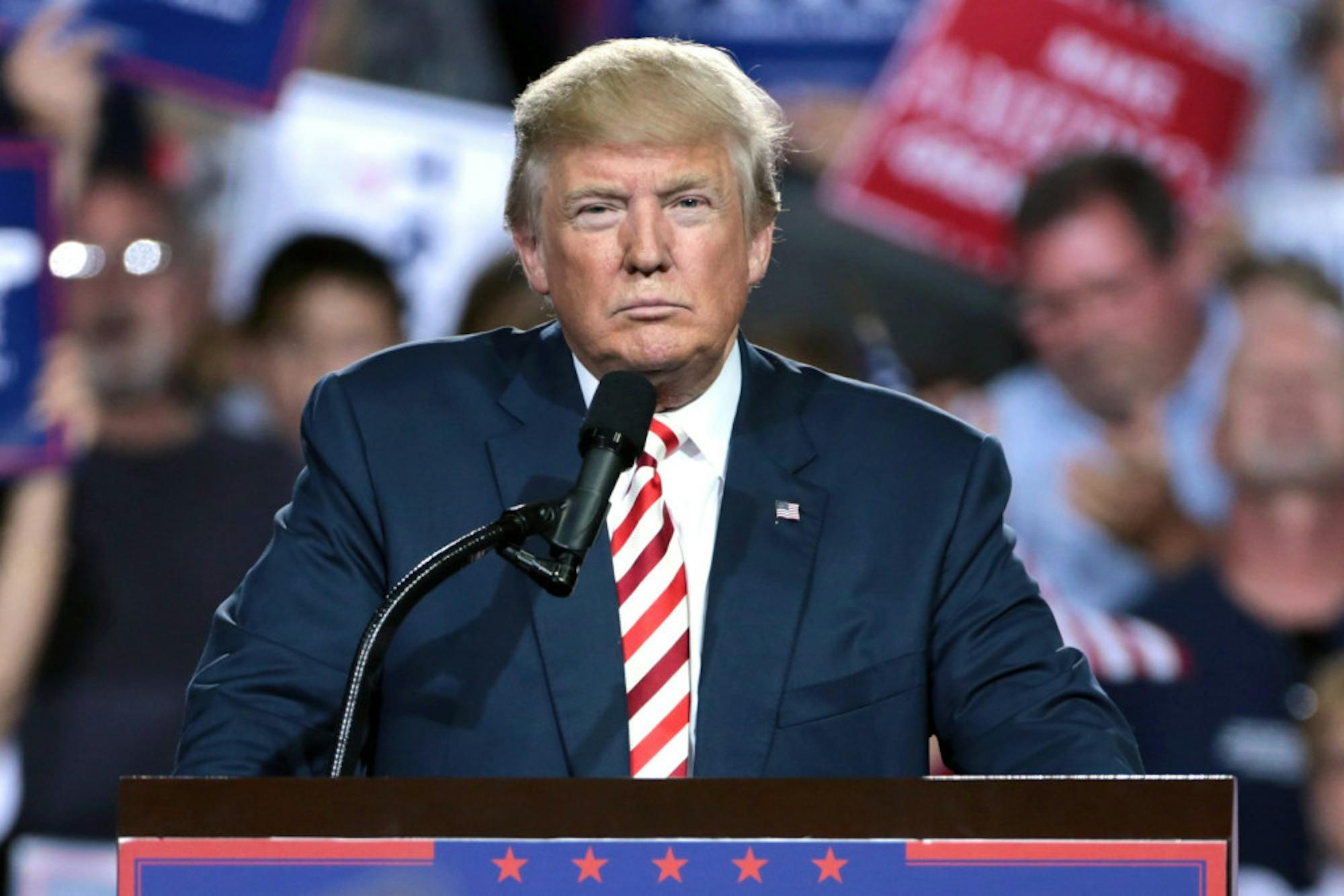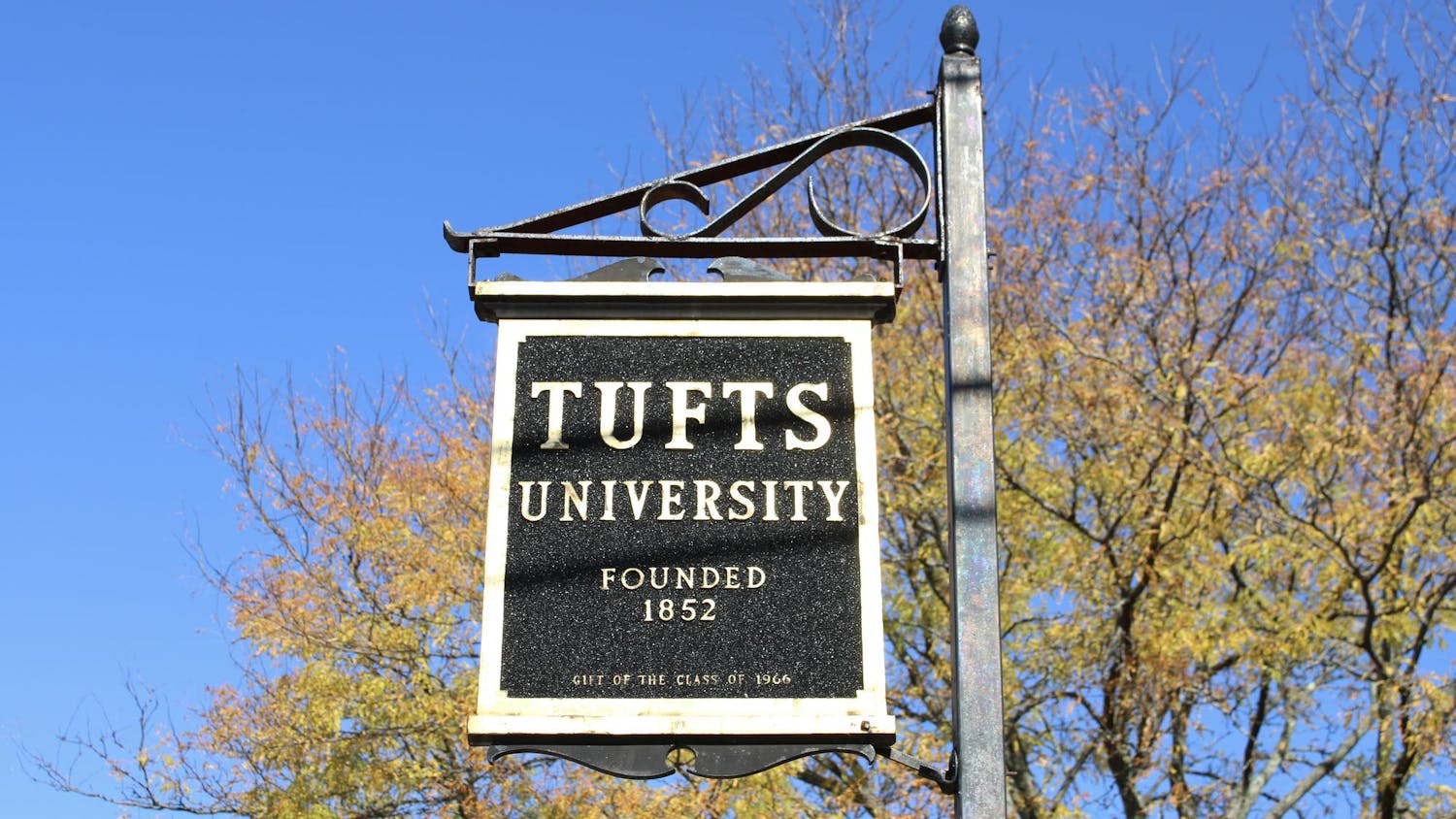Perhaps the most notable oddity of former President Donald Trump’s business career is the diversity of his ventures. Besides real estate, the former president has sold NFTs, wine and golden “Never Surrender” high-top sneakers. Most recently, Trump has embarked on his newest scheme: Bibles. For $59.99, the “God Bless the USA” Bible, which holds the King James translation, the Pledge of Allegiance, the U.S. Constitution and the Declaration of Independence, can now be purchased online. While the “God Bless the USA” Bible is another laughable odyssey of Trump’s business career, it’s more importantly emblematic of his dangerous codependent relationship with Christian nationalism.
Trump is no stranger to sympathizing with Christian nationalists. Early in his presidency, white supremacist rioters took to the streets of Charlottesville, Va. to protest the removal of a Confederate statue of Gen. Robert E. Lee. While marching, insurgents chanted “Jews will not replace us,” implying that white Christians are meant to be in power. Rather than condoning the appalling actions of the rioters, Trump asserted that there were “very fine people on both sides.” Trump also kept his promise of appointing Supreme Court justices who would overturn Roe v. Wade , a case that had been of chief concern for the Christian right over the years.
These appeals towards Christian nationalists likely led to their significant electoral support for him in 2020. As one PRRI poll found, there was a strong correlation between strong Christian beliefs and support for Trump in 2020.
But Christian nationalists’ support isn’t limited to just casting their ballots for Trump. The Jan. 6 insurrection is perhaps the most significant demonstration of the extent to which Christian nationalists will go to defend Trump. Insurrectionists stormed the capitol to stop the certification of 2020 presidential election results and to prevent then president-elect Joe Biden from assuming office. Throughout the ordeal, Christian nationalism was on clear display: Demonstrators were seen waving the Bible atop the Senate dais, crying, “Jesus Christ, we invoke your name!” and holding signs reading “Trump is my president” and “Jesus is my savior.”
Given the immense regard Christian nationalists have for Trump, it’s unsurprising that he has ramped up his efforts to harness their power. In addition to Bibles, Trump has pandered to his Christian base by declaring that he would establish a national Christian Visibility Day and a federal task force to fight anti-Christian bias if elected. He also claimed at a convention in Nashville, Tenn. to be “taking bullets” for Christians. To hear a former president — and potential future president — disregard the separation of church and state by making Christianity so central to his policy platform and leaning into dangerous rhetoric should be a red flag to all of us. Moreover, with the already increasing presence of Christian nationalism in politics, from anti-LGBTQ+ legislation to the in vitro fertilization saga in Alabama in February, there is a clear cause for concern regarding the blood pact Trump has made with Christian nationalists. What is to become of the establishment clause if Trump is elected to a second term? I doubt it aligns with what the Founders would have wanted.
With such prominent political figures like Rep. Marjorie Taylor Greene, R-Ga., and Florida Gov. Ron Desantis embracing the ideals of Christian nationalism, Trump’s behavior may seem on par with far-right Republicans. But it’s imperative not to normalize such a fusion of religious extremism and politics. The Trump-evangelical bond should prompt increased efforts to deter the ever-growing threat posed by Christian nationalism. More Republicans should follow in the footsteps of party members who have taken a stand against Christian nationalism, such as Oklahoma Attorney General Gentner Drummond, who stood against the decision for a public religious charter school. Christian nationalism threatens the institution of democracy by creating a dangerous us-versus-them narrative that has begun to seep into individual rights. These radical religious beliefs do not belong anywhere near the White House.






